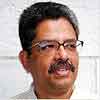Feeling “distracted from distraction by distraction”? It’s time to disconnect...
New Year resolutions are no longer about giving up smoking or being kind to strangers. It is about spending less time on the internet. Recently I met a friend who spends so much time on the net that he has no time for his real job. “I think I must get myself one of those things,” he said, “You know, that app... I can’t remember the name... I’ll have to look it up on the net.”
He was – without being aware of it – speaking of the Freedom app which unplugs you from the internet for up to eight hours a day, the addict’s redemption, the professional’s way out or whatever. In a couple of generations, we have moved from EM Forster’s prayer: “Only connect”, to Freedom’s recommendation, “Only disconnect.”
It is a wonderful commentary on the human situation that we spend millions and billions on developing and marketing labour-saving devices, and then force ourselves to sink further millions to keep us from using them because, as TS Eliot said in another context, we are being “distracted from distraction by distraction”. We invent the television and then try to figure out ways of not watching it so we can use that time for either productive work or simply, leisure. We discover the enormous power of nuclear energy and then try to keep countries from using it for peaceful purposes. We drink coffee decaf, have yogurt without fat, sugar substitutes, and go to art galleries whose theme is ‘Nothing’ – blank canvasses on display.
To have, must necessarily be followed by to have not. Psychologists recommend ‘news fasts’, days when you are told to keep away from newspapers, phones, television, even local gossip so the day is not dominated by ‘breaking news’ or any other kind. The counter-Wikipedia will consist of a large number of blank pages so whatever you look up you will be greeted by a blank page. It is the visual cousin to the soundlessness that doubtless will soon be a feature of silent iPods.
For years, on holidays, we worried about the strength of the signal. Would the phone work, would we be able to connect to the internet? Now, the true holiday is to areas where you have to pay extra for not having a signal for your phone, for not having internet connections or television or the local drummer boy running through announcing the entertainment for the evening.
Now if only they had apps that could help smokers give up their habit, or philandering spouses stick to the straight and narrow. Perhaps they do already. We just need to check the internet.
The average human being who has an average calculator on his phone can no longer add, subtract, multiply or divide on his own. The human brain has outsourced such activities to the silicon chip. The same chap can no longer spell correctly thanks to the predictive text on his phone and computer. Words are auto-corrected with great enthusiasm; even words that don’t need to be corrected are changed with a child-like disregard for propriety.
You would imagine that freed of the hassle of calculating or writing correctly, we would spend the time saved in creative work (or workmanlike, as my computer suggests. Such a smart computer, and yet so dumb, always suggesting possible rather than actual words). Of the three R’s, ‘rithmetic and ‘riting are following reading into oblivion. This, to use is a fourth R is quite ‘rritating, even (to use a fifth) ‘rrible.
The fault is in our apps. We have apps for nearly everything – to tell us whether it is night or day, to confirm our gender, to let us know whether we are sitting or standing, to map out the shortest route to the fridge at home. I exaggerate, but don’t be surprised if you hear about them soon. An app a day, as I often say, keeps the doctor away. This has given rise to a whole set of new words in our dictionaries:
Appathy: Lack of emotion brought on by the fast-multiplying apps.
Appology: an admission of error brought on by using the wrong app.
Appoplexy: Anger brought on by the fast-multiplying apps.
Appetite: An intense desire for freshly made apps.
Appocalypse: The final destruction of the apps world.
‘appiness: Joy at the evolution of yet another app.
